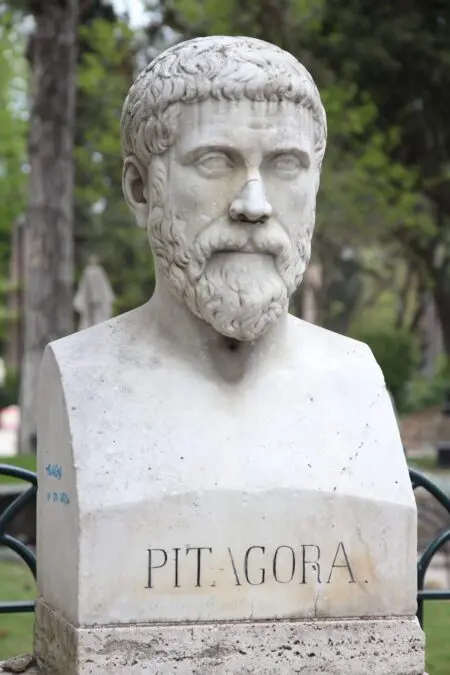When it comes to the deaths of celebrities from ancient Greece, every story is more absurd than the last
When we think of ancient Greece, we imagine the birth of civilization and the mecca of culture.
That time was a period of great development for humanity – from the creation of democracy to the breakthroughs in philosophy, science and art. Brave heroes and genius innovators seemed commonplace.
But according to Greek mythology, this was an extremely dangerous time, and Greece itself was an unpleasant place to live.
Many of the greatest minds of all time – Pythagoras, Heraclitus – have perished as a result of their own innovations. Strange objects falling from the sky, which were no exception at the time, also posed a serious risk!
When it comes to the deaths of celebrities from ancient Greece, each story is more absurd than the last.
Some of the most curious deaths in the history of ancient Greece:
Pythagoras
Pythagoras was one of the few Greek philosophers whose name is remembered by most people today. This is due to the Pythagorean theorem. He is also known for his incredible achievements in mathematics and science, but he also had some rather strange beliefs.
Pythagoras believed that humans and beans came from the same source and were therefore closely related. Pythagoras experimented with burying a few beans and noticed that they looked like human embryos when he dug them up a few weeks later. So he came to the conclusion that the bean carries a soul and eating or even damaging it would be murder. One of Pythagoras’ death stories tells that he angered a nobleman named Kilon when he refused to allow him to join his followers (he ran a commune of like-minded people). Kilon organized an angry mob tasked with killing Pythagoras in revenge. Pythagoras escaped and escaped the crowd, but when he reached a field of beans, he refused to compromise his convictions and decided not to cross. He was therefore captured and killed.
Pirch
Pirch is a legendary Greek general and military hero, known for his incredible feats in a number of battles. He was preparing for another victory in battle, or perhaps for his honorable death, as he led his army into battle to capture the city of Argos.
An old woman watched from the roof of her house as Pirch and his men passed through the city. Her son took part in the resistance, and she saw Pirch point directly at him. Knowing that her son would not survive the clash with the famous general, she took matters into her own hands. She grabbed a tile from the roof of her house and threw it on Pirch’s head. She managed to hit him right in the head and threw him off his horse. That’s how she managed to kill the great general.
Icarus
The history of Icarus is still known today. He was the son of a famous craftsman named Daedalus, who was known for building the Labyrinth for King Minos. Minos wanted to keep the Labyrinth a secret, so he locked Daedalus and Icarus in a tower. However, the innovative father and son devised an escape plan. Using feathers and wax, they created two pairs of wings so they could fly out the window. However, they had to be careful where they flew, as the wax melted extremely quickly due to heating from the sun, and the feathers could begin to fall off when wet from seawater. After jumping from the tower and starting to float in the air, Icarus forgot this fact and began to fly higher and higher. The wax melted and its wings fell apart, then it fell into the water and died.
Heraclitus
The Greek philosopher Heraclitus suffered from edema, a disease in which fluid builds up under the skin, causing painful swelling. The doctors told him there was no cure, but the genius believed he was smarter than them and could find a solution. Heraclitus covered himself with cow dung from head to toe, believing that this would remove the fluid from his body. He lay in the sun waiting for the medicine to work, but the stool dried up and became a hard shell that made him unable to move. Unfortunately, a pack of wild dogs came across his immobile body and ate it.







